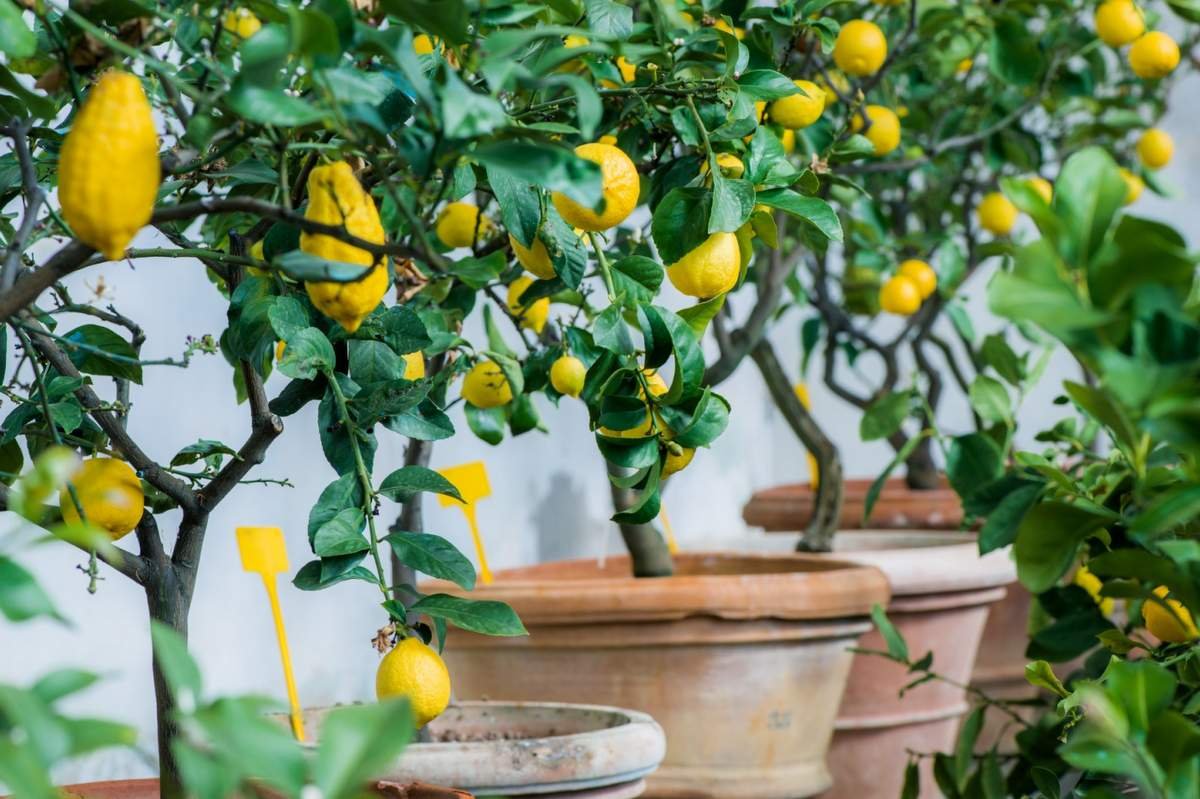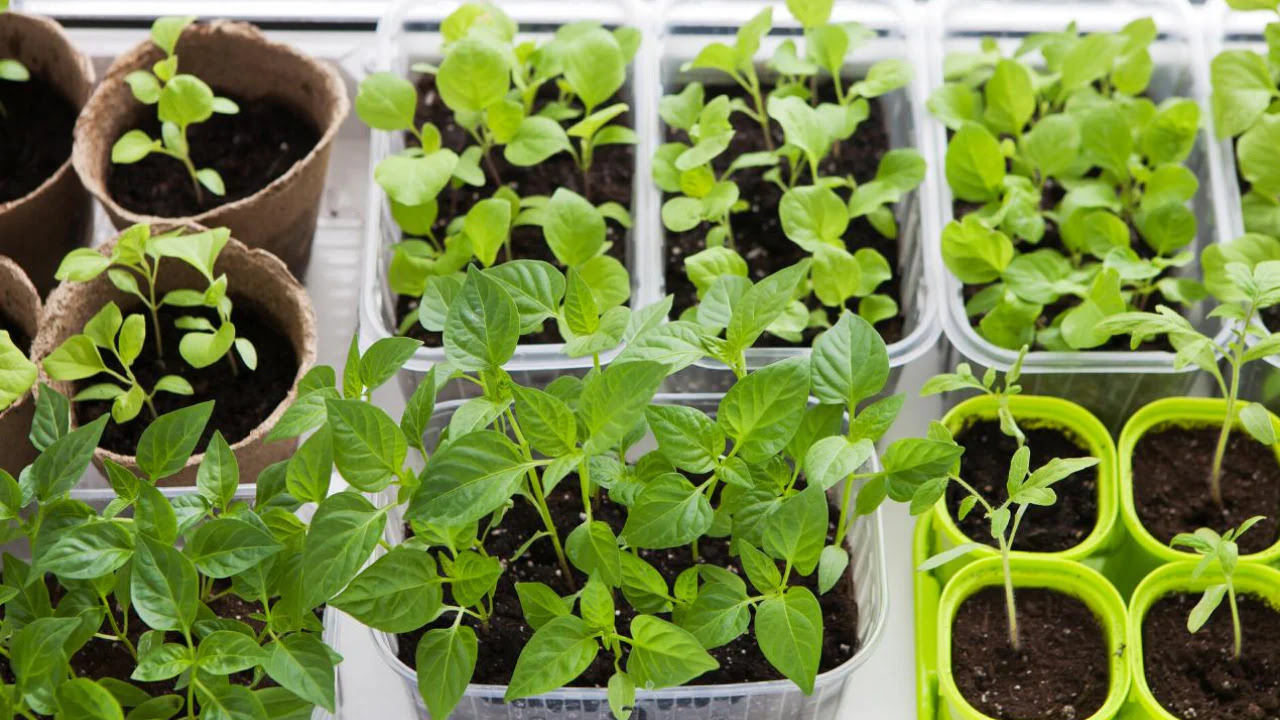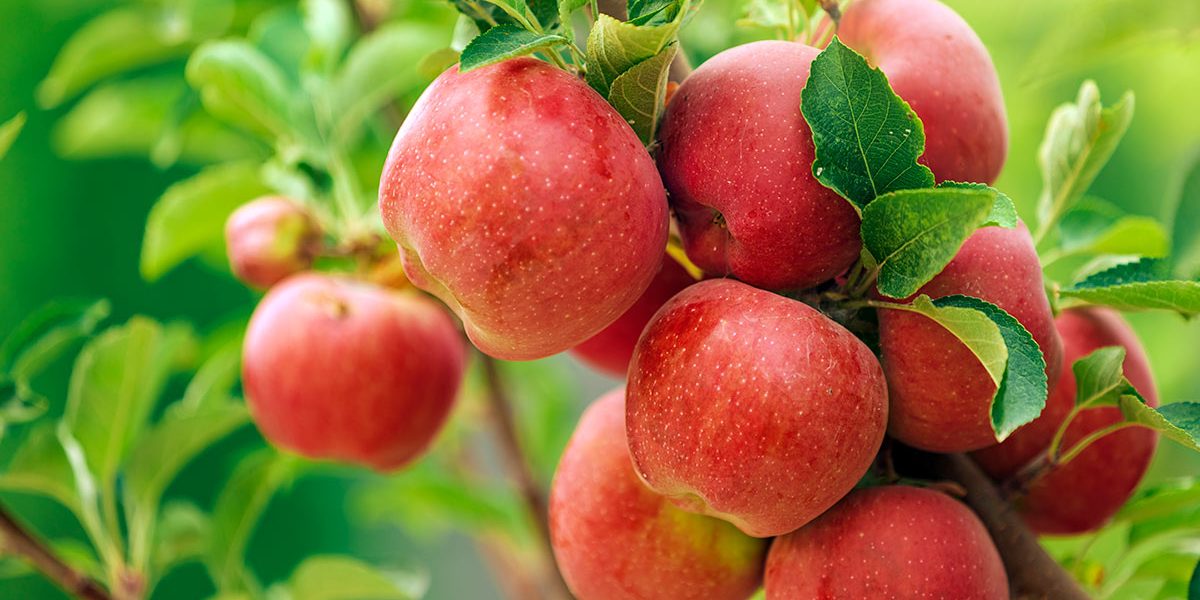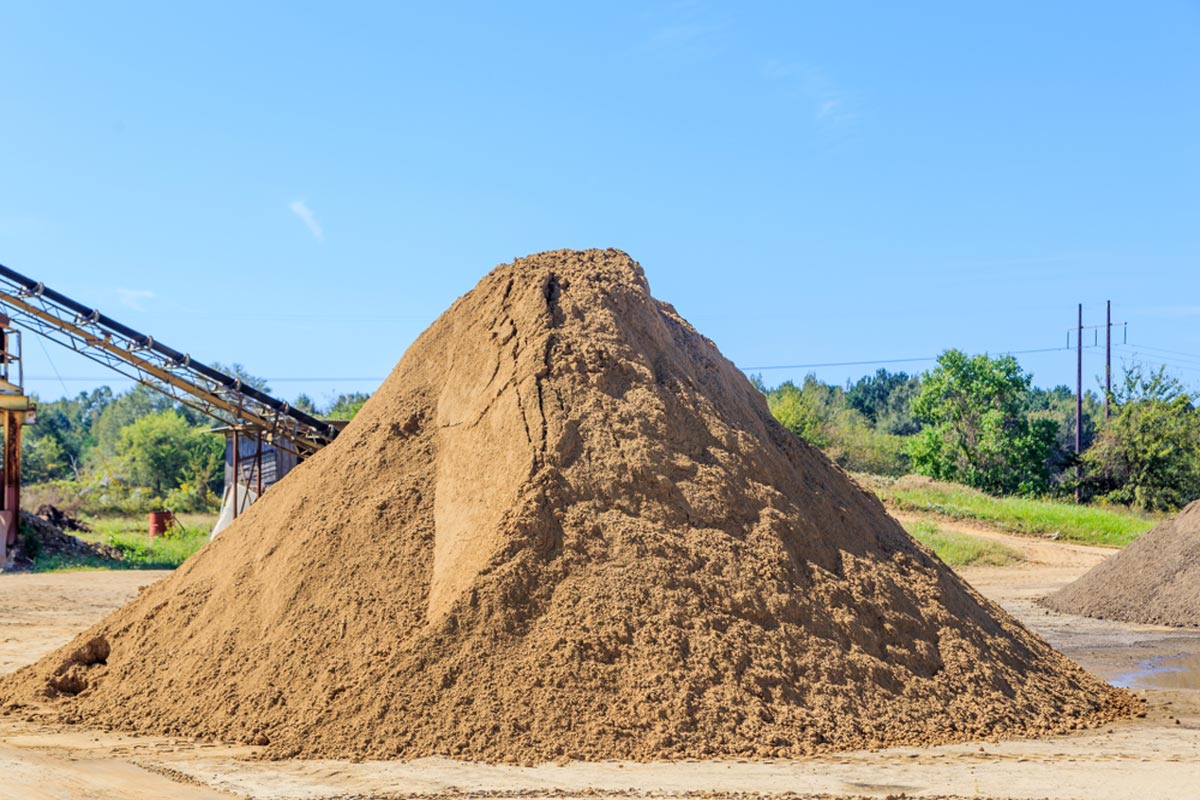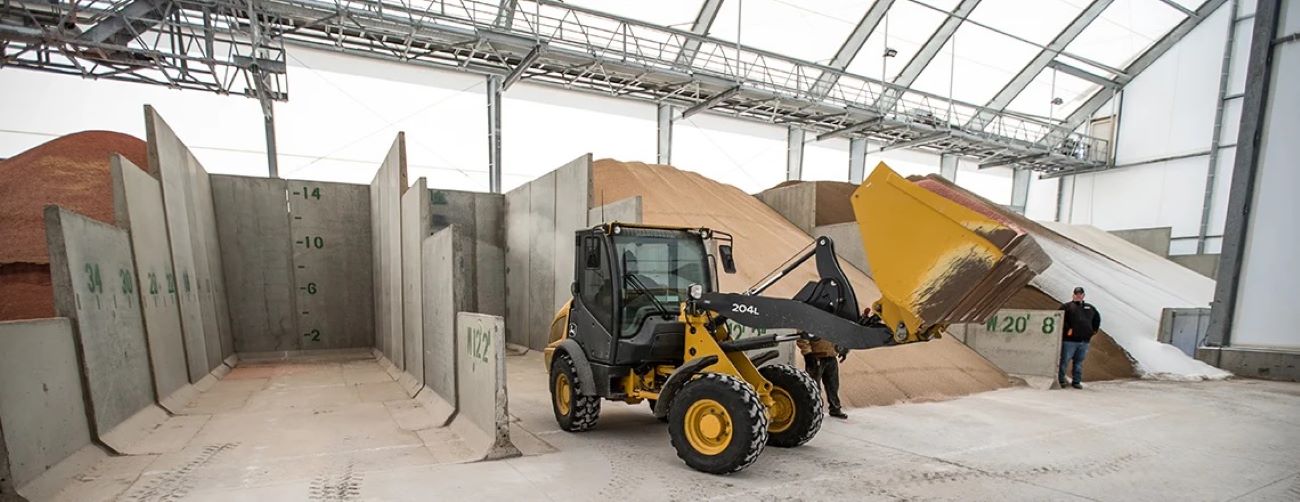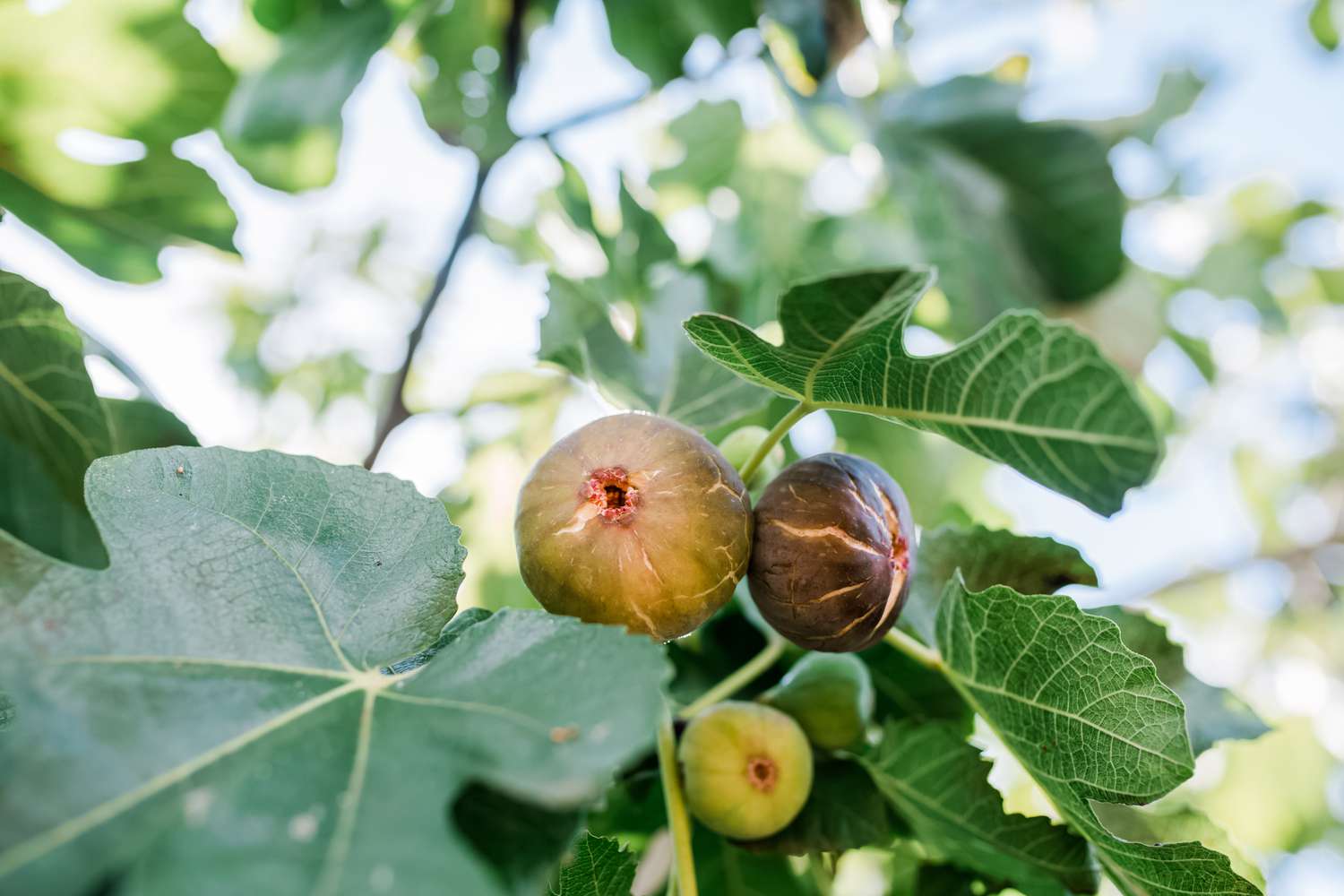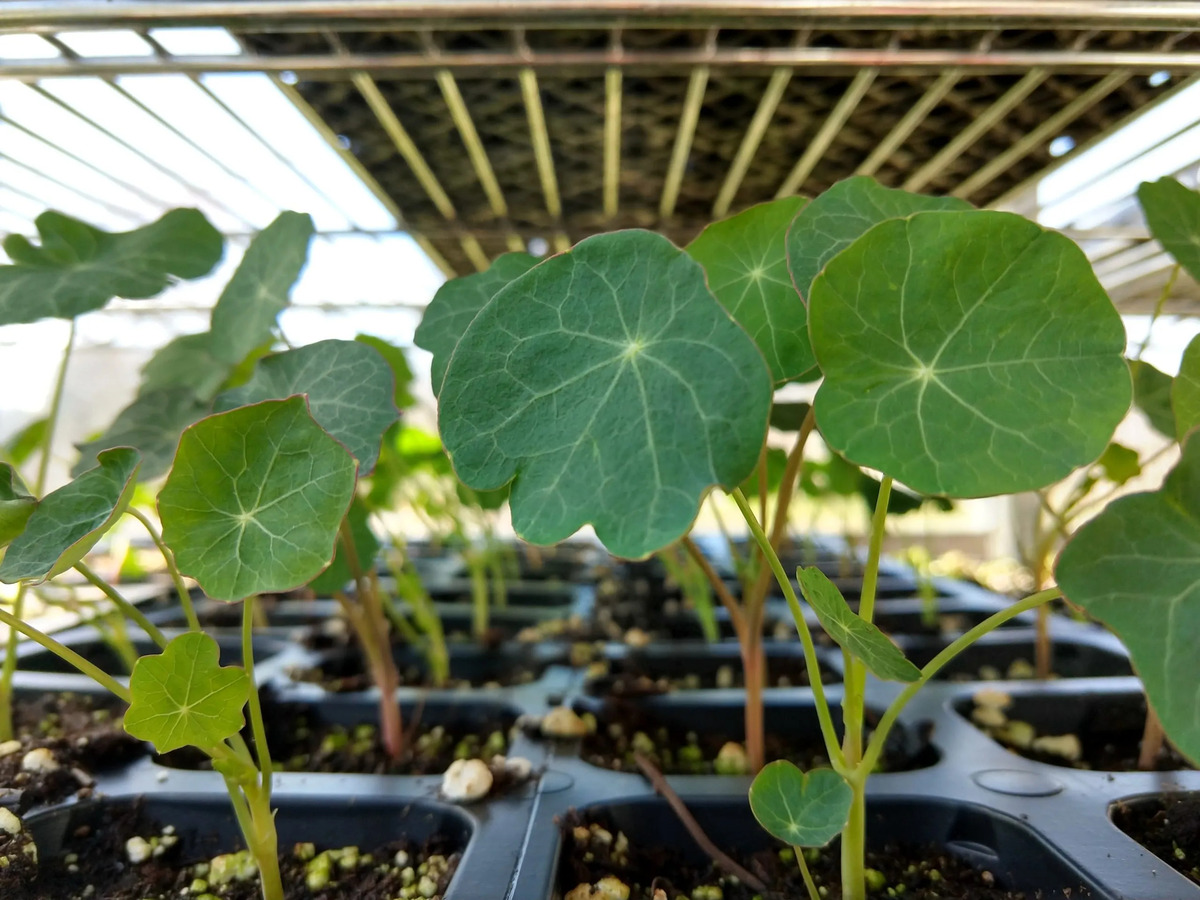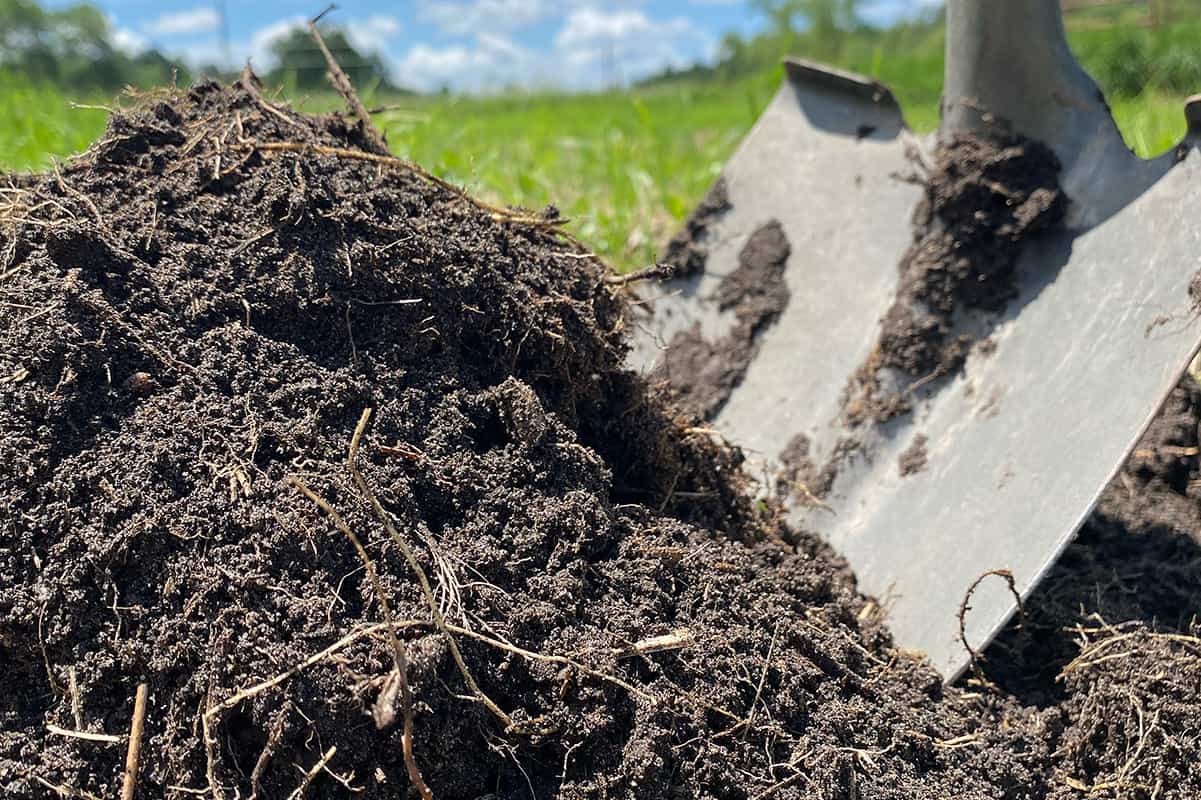Home>Gardening Tips and Tricks>Eco-Friendly Gardening>Where To Drop Off Compost Near Me
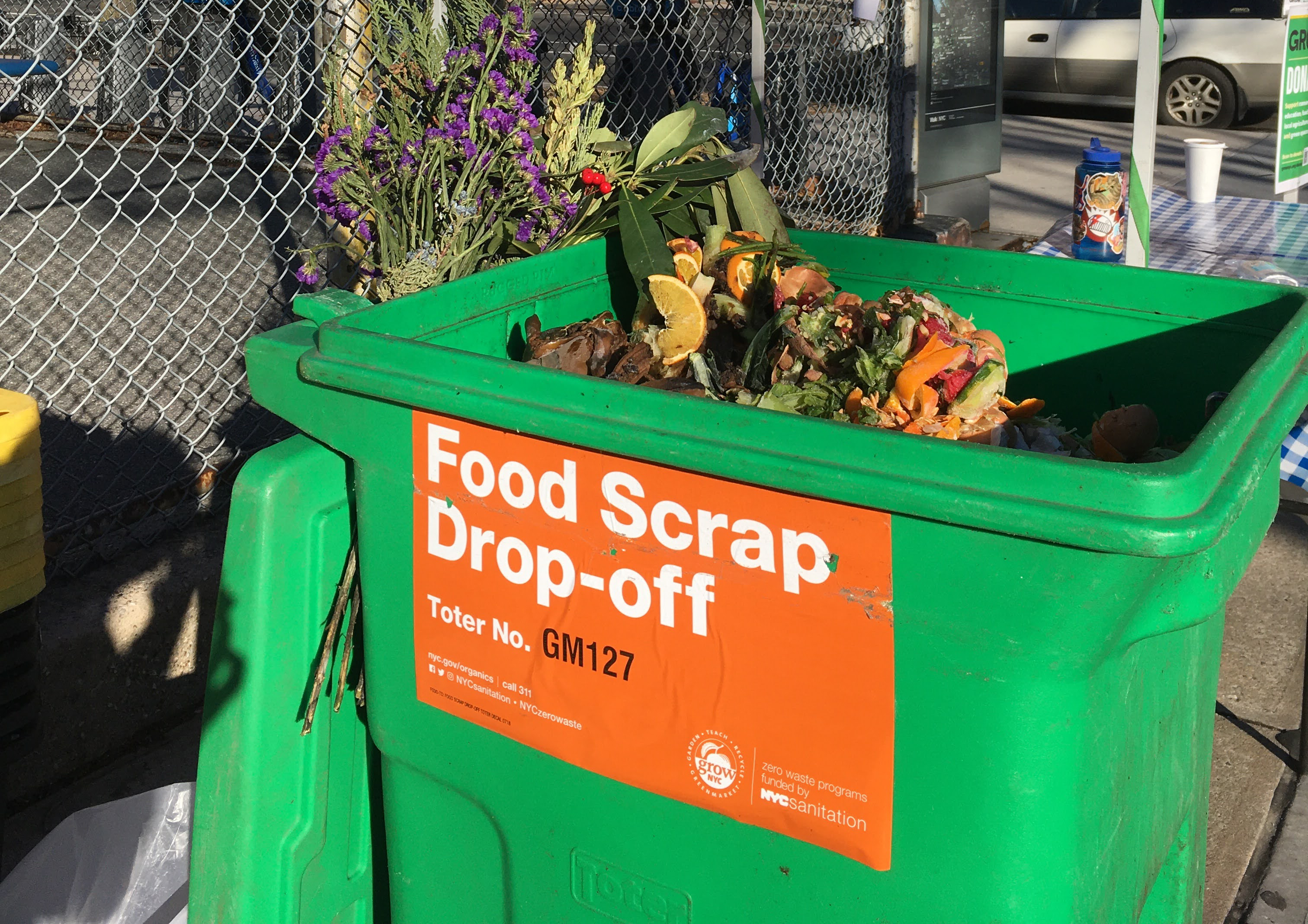

Eco-Friendly Gardening
Where To Drop Off Compost Near Me
Modified: January 22, 2024
Looking for eco-friendly gardening options? Find convenient drop-off locations for compost near you and contribute to sustainable gardening practices.
(Many of the links in this article redirect to a specific reviewed product. Your purchase of these products through affiliate links helps to generate commission for Chicagolandgardening.com, at no extra cost. Learn more)
Table of Contents
Introduction
As the global consciousness around environmental conservation continues to grow, so does the popularity of eco-friendly gardening practices. One such practice that has gained significant traction in recent years is composting. Composting is a natural process of decomposing organic waste, which not only reduces landfill waste but also creates nutrient-rich soil for gardening.
If you are interested in adopting eco-friendly gardening practices, you may be wondering where to drop off your compost. Fortunately, there are several options available to help you properly dispose of your organic waste and contribute to a more sustainable future.
In this article, we will explore various locations where you can drop off your compost near you. Whether you live in an urban city or a suburban neighborhood, there are likely convenient options available to help you dispose of your organic waste responsibly and support local organic farming initiatives.
Let’s dive in and explore the different places where you can drop off your compost.
Local Farmer’s Markets
Local farmer’s markets are not only a great place to find fresh and locally grown produce, but they can also serve as a drop-off point for your compost. Many farmer’s markets have designated areas or bins where you can deposit your organic waste for composting.
When you visit your local farmer’s market, look out for signage or ask the vendors if they accept compost. Some markets may even offer incentives, such as discounts or tokens, for those who bring in their compost. This encourages community members to actively participate in sustainable practices.
By dropping off your compost at farmer’s markets, you can support local farmers who can use the compost to enrich their soil and grow more nutritious produce. It’s a win-win situation that not only diverts organic waste from landfills but also helps create a more sustainable local food system.
Remember to follow any specific guidelines provided by the farmer’s market regarding what types of organic waste they accept and any packaging requirements. It’s important to properly sort your compost and avoid including any non-compostable materials.
Additionally, farmer’s markets are great places to connect with like-minded individuals who are passionate about sustainable gardening. You can exchange tips and ideas with other eco-conscious individuals and learn more about local initiatives focused on composting and organic gardening.
Supporting local farmer’s markets not only benefits the environment but also contributes to the local economy. By dropping off your compost at farmer’s markets, you actively participate in creating a more sustainable and resilient community.
Community Gardens
Community gardens are valuable green spaces where individuals can come together to cultivate plants and promote sustainable gardening practices. These gardens are often maintained by a collective of volunteers and provide an ideal location to drop off your compost.
When you contribute your compost to a community garden, you are not only diverting organic waste from landfills but also helping to enrich the soil used by community members to grow their own fruits, vegetables, and flowers.
Many community gardens have designated composting areas or bins where you can deposit your organic waste. These composting systems may vary, from traditional compost piles to vermicomposting bins using worms to break down the material.
Before dropping off your compost at a community garden, it is essential to check their guidelines or reach out to the garden organizers to ensure they accept compost from the public. Some community gardens may require you to become a member, while others may be open to the general public.
When dropping off your compost at a community garden, it is important to follow the guidelines regarding what types of organic waste they accept and any specific composting methods they prefer. This will ensure that your compost integrates seamlessly into their overall gardening practices.
By contributing to community gardens, you become an active participant in the local sustainable gardening community. You can witness firsthand the transformation of your organic waste into nutrient-rich soil that nourishes a variety of plants and contributes to the overall beauty and productivity of the garden.
Community gardens also provide a unique opportunity to learn from experienced gardeners and share your own knowledge and experiences. By engaging with fellow gardening enthusiasts, you can expand your understanding of eco-friendly gardening practices and form meaningful connections with like-minded individuals in your community.
Supporting community gardens not only fosters a sense of community and environmental stewardship but also helps create green spaces that benefit the overall health and well-being of the community. Drop off your compost at a community garden and be a part of the local movement towards sustainable gardening.
Municipal Composting Facilities
Municipal composting facilities are dedicated facilities operated by local governments or waste management organizations that specialize in the composting of organic waste. These facilities are designed to handle large volumes of compostable materials and are an excellent option for dropping off your compost.
When you take your compost to a municipal facility, you can rest assured that it will be properly processed and used for various purposes. Municipal composting facilities often have advanced systems and methods for efficiently breaking down organic waste and producing high-quality compost.
To find a municipal composting facility near you, check with your local government or waste management agency. They can provide information about the location, hours of operation, and any specific guidelines you need to follow when dropping off your compost.
Typically, these facilities accept a wide range of organic waste, including kitchen scraps, yard trimmings, and plant-based food packaging. However, it’s essential to familiarize yourself with their specific regulations to ensure that you’re only dropping off materials that they can process.
In some cases, municipal composting facilities may charge a small fee for dropping off your compost. This fee helps cover the costs associated with managing and processing the organic waste. However, the benefits of diverting organic waste from landfills and contributing to the production of nutrient-rich compost far outweigh this minimal expense.
By utilizing municipal composting facilities, you are actively participating in your community’s waste diversion efforts and supporting a more sustainable waste management system. Your compost will be transformed into valuable soil amendments that can be used in landscaping projects, community gardens, or agricultural practices.
In addition to dropping off your compost, many municipal composting facilities offer compost for sale to the public. This provides an opportunity to purchase nutrient-rich compost to enhance your own gardening endeavors.
By taking advantage of municipal composting facilities, you are making a positive impact on the environment while also contributing to the circular economy by closing the loop on organic waste. Choose this option to ensure that your compost is processed efficiently and utilized for the betterment of your community’s green spaces.
Yard Waste Drop-Off Sites
If you have a backyard and regularly engage in gardening or landscaping activities, you may generate a significant amount of yard waste. Instead of disposing of it in your regular trash bin, consider utilizing yard waste drop-off sites as a more eco-friendly option.
Yard waste drop-off sites are facilities specifically designed to accept and process yard waste, including grass clippings, leaves, branches, and other organic materials typically generated during yard maintenance. These sites often have designated areas or containers where you can deposit your yard waste.
Many cities and towns have established yard waste drop-off sites to encourage residents to properly manage their yard waste while promoting sustainable practices. These sites are usually run by local governments or waste management organizations and may have specific guidelines for drop-off.
When using yard waste drop-off sites, it’s crucial to ensure that you only deposit materials that fall within their accepted criteria. This typically includes untreated wood, grass clippings, leaves, and small branches. It’s important to remove any non-organic materials, such as plastic bags or metal items, before dropping off your yard waste.
Some yard waste drop-off sites may require proof of residency or charge a nominal fee for usage. These fees are typically used to cover the operational costs of the site and ensure its sustainability.
Once deposited, the yard waste collected at these sites is then processed into compost or mulch. This compost can be used for landscaping projects, community gardens, or even provided back to residents for their personal use. By contributing your yard waste to these drop-off sites, you are actively participating in the cycle of organic matter decomposition and reuse.
Yard waste drop-off sites are not only a convenient option for disposing of your yard waste responsibly but also contribute to the overall management of organic waste in your community. By utilizing these designated facilities, you are playing a vital role in diverting yard waste from landfills and helping create nutrient-rich compost to enhance local green spaces.
Remember to contact your local municipality or waste management authorities to find out the specific locations, guidelines, and operating hours of yard waste drop-off sites in your area. Embrace this sustainable choice and contribute to a greener environment by utilizing these dedicated facilities for your yard waste disposal needs.
Organic Waste Recycling Centers
Organic waste recycling centers are specialized facilities that focus on the processing and recycling of various types of organic waste. These centers offer a convenient and responsible solution for disposing of organic waste that cannot be composted at home or dropped off at other locations.
At organic waste recycling centers, you can typically drop off a wide range of organic materials, including food scraps, yard waste, plant trimmings, paper products, and even some biodegradable packaging. These centers have the equipment and expertise to properly handle and process these materials for recycling.
When visiting an organic waste recycling center, be sure to familiarize yourself with their specific guidelines regarding acceptable items, sorting requirements, and any fees that may apply. Sorting your organic waste correctly and adhering to the guidelines will help ensure that the recycling process is efficient and effective.
Depending on the center’s capabilities, the organic waste may undergo various recycling processes. These can include composting, anaerobic digestion, or mechanical separation to produce valuable byproducts such as compost, biogas, or even renewable energy.
By utilizing organic waste recycling centers, you contribute to the reduction of greenhouse gas emissions associated with organic waste decomposition in landfills. Instead of letting organic waste produce harmful methane, these centers convert it into useful resources that can benefit the environment and communities.
Many organic waste recycling centers also offer educational programs and resources to raise awareness about the importance of organic waste recycling and sustainable practices. They may provide information on how to reduce organic waste generation, improve waste sorting skills, and promote overall environmental stewardship.
Consider visiting local government websites, waste management organizations, or environmental organizations to find organic waste recycling centers near you. These centers are often strategically located to ensure convenient access for residents and businesses.
By taking advantage of organic waste recycling centers, you actively contribute to a more sustainable waste management system. Your organic waste is transformed into valuable resources instead of ending up in landfills, helping to conserve natural resources and reduce the negative environmental impacts associated with waste disposal.
Make the conscious choice to utilize organic waste recycling centers and be a part of the movement towards a greener, more sustainable future.
Home Composting Options
If you have a green thumb and a desire to reduce your carbon footprint, home composting is an excellent option. By composting at home, you can transform your kitchen scraps and yard waste into nutrient-rich soil amendment for your own garden.
There are several home composting options available, ranging from simple methods suitable for small spaces to more advanced systems for those with larger yards or gardens. Here are a few popular home composting methods:
- Backyard Composting: This is the most traditional and straightforward method of composting. Simply designate a composting area in your yard and start layering organic materials like food scraps, yard waste, and leaves. Regularly turn and water the pile to promote decomposition, and in a few months to a year, you’ll have rich, dark compost ready to use.
- Vermicomposting: Vermicomposting involves using worms to break down organic waste. It’s an ideal option for those with limited outdoor space or even for apartment dwellers. Purchase a vermicomposting bin and introduce red worms, such as red wigglers, that are specifically bred for composting. Feed them a balanced diet of food scraps, shredded paper, and cardboard, and they will convert it into worm castings, a valuable compost material.
- Tumbling Composter: Tumbling composters are designed with a rotating drum that makes turning and mixing the compost much easier. They provide a convenient option for those who want to speed up the composting process and have limited time and space. Add your organic waste to the drum, periodically rotate it to aerate the compost, and in a few weeks to a couple of months, you’ll have well-mixed compost ready to use.
- Bokashi Composting: Bokashi composting is a fermentation-based method that utilizes beneficial bacteria to decompose organic waste. It’s suitable for all types of organic materials, including meat, dairy, and citrus peels, which are typically not recommended for traditional composting. You’ll need a Bokashi bin and a Bokashi microbial mix. Simply layer your food waste with the mix, seal the bin, and let the fermentation process work its magic. Once the fermentation is complete, you can bury the pickled waste in the ground or add it to a traditional compost pile to finish the decomposition process.
When deciding on a home composting method, consider your space limitations, preference for manual labor, and desired composting timeframe. Each method has its benefits and considerations, so choose one that best fits your lifestyle and composting goals.
By composting at home, you divert organic waste from landfills, decrease greenhouse gas emissions, and create a valuable resource that nourishes your plants and reduces the need for synthetic fertilizers.
Remember to maintain a proper balance of carbon-rich and nitrogen-rich materials in your compost, keep it adequately moist, and turn it regularly to ensure proper decomposition and prevent odors or pests.
Home composting is an empowering way to actively engage in sustainable gardening practices and make a positive impact on the environment. Start composting at home today and see the transformation of your organic waste into nutrient-rich compost that fuels the growth of your plants.
Conclusion
As environmentally conscious individuals, adopting eco-friendly gardening practices and properly disposing of organic waste is essential. Fortunately, there are various options available when it comes to dropping off compost materials near you.
Local farmer’s markets provide a convenient location to drop off compost while supporting local farmers and the community. Community gardens offer an opportunity to contribute your compost while fostering a sense of community and knowledge sharing. Municipal composting facilities ensure your organic waste is processed efficiently and utilized for beneficial purposes.
Yard waste drop-off sites provide a dedicated space for environmentally friendly disposal of yard waste, while organic waste recycling centers specialize in processing a wide range of organic materials.
Alternatively, if you have the space and inclination, home composting is an excellent option that allows you to transform your organic waste into nutrient-rich compost right in your own backyard.
By utilizing these various options, you actively participate in sustainable waste management practices and support the creation of healthy soils for future generations. Whether you choose to drop off your compost at a local farmer’s market, community garden, municipal composting facility, yard waste site, recycling center, or compost at home, you are contributing to the larger goal of reducing landfill waste and building a more sustainable environment.
Remember to familiarize yourself with the specific guidelines for each option, including accepted materials, sorting requirements, and any associated fees. Additionally, don’t hesitate to engage with local organizations, waste management agencies, or gardening communities to explore more opportunities and learn about innovative composting initiatives in your area.
Let’s take the initiative and be part of the movement towards eco-friendly gardening and responsible waste management. Make a difference by dropping off your compost materials at one of these locations, recycling organic waste, and nurturing a sustainable future.
